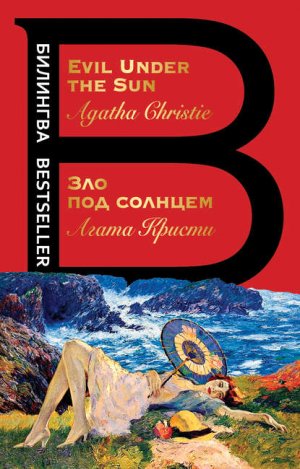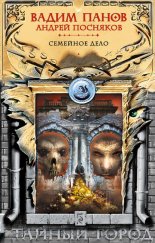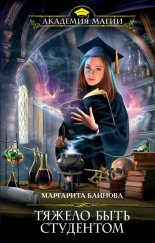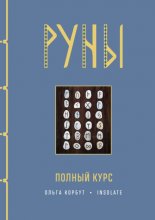«ло под солнцем / Evil Under the Sun ристи јгата

Ц†Ќет, € полностью в здравом рассудке.
Ц†Ќу, в любом случае ванну € не принимала.
Ц†’а!†Ц воскликнул ѕуаро.†Ц «начит, никто не принимал ванну. Ёто крайне любопытно.
Ц†Ќо почему кто-то должен был принимать ванну?
Ц†ƒействительно, почему?
Ц†ѕолагаю, это и есть метод Ўерлока ’олмса!†Ц с некоторым раздражением произнесла –озамунд.
ѕуаро улыбнулс€.
Ц†ћадемуазель, вы позволите мне одну дерзость?
Ц†ћесье ѕуаро, уверена, вы не способны на дерзость.
Ц†¬ы очень любезны. ¬ таком случае € осмелюсь заметить, что вы пользуетесь восхитительными духами Ц у них есть нюанс, тонкое неуловимое очарование.†Ц ¬ыразительно взмахнув руками, он добавил уже деловым тоном:†Ц ≈сли не ошибаюсь, Ђ√абриэль є†8ї?
Ц†¬ы совершенно правы. ƒа, € всегда ими пользуюсь.
Ц† ак и покойна€ миссис ћаршалл. –оскошные духи, не правда ли? » очень дорогие.
–озамунд с легкой усмешкой пожала плечами.
Ц†¬ день убийства, мадемуазель, вы сидели вот здесь, где мы сидим сейчас,†Ц продолжал ѕуаро.†Ц ћисс Ѕрюстер и мистер –едферн, проплывавшие мимо на лодке, видели вас здесь Ц точнее, видели ваш зонтик. ћадемуазель, вы точно не спускались в тот день в бухту Ёльфов и не заходили в расположенную там пещеру Ц в знаменитую пещеру Ёльфов?
ѕовернувшись к нему, –озамунд смерила его долгим взгл€дом.
Ц†¬ы спрашиваете у мен€, € ли убила јрлену ћаршалл?†Ц тихим ровным голосом произнесла она.
Ц†Ќет, € спрашиваю у вас, заходили ли вы в пещеру Ёльфов?
Ц†я даже не знаю, где она находитс€. «ачем мне туда заходить? — какой целью?
Ц†¬ день преступлени€, мадемуазель, в пещере побывал тот, кто пользуетс€ Ђ√абриэль є†8ї.
Ц†¬ы же сами только что сказали, месье ѕуаро,†Ц резко заметила –озамунд,†Ц что јрлена ћаршалл также пользовалась Ђ√абриэль є†8ї. ¬ тот день она была в бухте. ѕредположительно она и зашла в пещеру.
Ц†«ачем ей заходить в пещеру? ¬ход туда тесный, там темно и неуютно.
Ц†Ќе спрашивайте мен€, какие причины ею двигали!†Ц раздраженно сказала –озамунд.†Ц ѕоскольку јрлена действительно находилась в бухте, она самый веро€тный кандидат. я уже говорила вам, что провела здесь все утро и никуда не уходила.
Ц†≈сли не считать того, что вы вернулись в пансионат и загл€нули в номер капитана ћаршалла,†Ц напомнил ѕуаро.
Ц†ƒа, конечно. я об этом забыла.
Ц†» вы ошиблись, мадемуазель,†Ц добавил ѕуаро,†Ц предположив, что капитан ћаршалл вас не видел.
–озамунд изумленно уставилась на него.
Ц† еннет мен€ видел? ќнЕ он так сказал?
ѕуаро кивнул.
Ц†ќн видел вас, мадемуазель, в зеркале, вис€щем над столом.
”†–озамунд перехватило дыхание.
Ц†ј! ѕон€тно.
ѕуаро уже не смотрел на море, он смотрел на руки –озамунд ƒарнли, скрещенные на колен€х. Ёто были красивые руки, правильной формы, с очень длинными пальцами. Ѕыстро взгл€нув на него, –озамунд проследила за его взгл€дом.
Ц†ѕочему вы разгл€дываете мои руки?†Ц резко спросила она.†Ц Ќеужели вы думаетеЕ неужели вы думаетеЕ
Ц†„то € думаю?†Ц спросил ѕуаро.†Ц „то, мадемуазель?
Ц†Ќичего,†Ц сказала мисс ƒарнли.
ѕримерно через час Ёркюль ѕуаро подошел к началу тропинки, спускающейс€ в бухту „аек. Ќа берегу кто-то сидел. “онка€ фигура в красной рубашке и синих шортах.
ѕуаро медленно спустилс€ вниз, внимательно след€ за тем, куда поставить ноги в узких модных штиблетах. ѕри его по€влении Ћинда ћаршалл резко обернулась. ≈му показалось, она вздрогнула. ≈е взгл€д, когда ѕуаро приблизилс€ к ней и осторожно опустилс€ на гальку, следил за ним с подозрительностью и настороженностью загнанного животного. —о щем€щим сердцем детектив почувствовал, кака€ же она молода€ и ранима€.
Ц†¬ чем дело?†Ц сказала Ћинда.†Ц „то вам нужно?
Ёркюль ѕуаро ответил не сразу.
Ц†¬ разговоре с главным констеблем вы сказали, что любили свою мачеху и что она была к вам добра,†Ц наконец сказал он.
Ц†Ќу и?..
Ц†Ёто ведь неправда, так, мадемуазель?
Ц†ƒа, это неправда.
Ц†¬озможно, миссис ћаршалл не про€вл€ла свою непри€знь Ц такое € допускаю,†Ц продолжал ѕуаро.†Ц Ќо вы ее не любили Ц нет-нет, полагаю, она вам очень не нравилась. Ёто очевидно.
Ц†Ќаверное, она мне не очень-то нравилась,†Ц согласилась Ћинда.†Ц Ќо такие вещи нельз€ говорить об умершем. Ёто неприлично.
ѕуаро вздохнул.
Ц†¬ас этому научили в школе?
Ц†Ќу да, более или менее.
Ц† огда совершено убийство, гораздо важнее говорить правду, чем соблюдать правила приличи€,†Ц заметил Ёркюль ѕуаро.
Ц†Ќаверное, вы должны были сказать что-нибудь в таком духе.
Ц†я должен был это сказать, и € это говорю. ѕонимаете, мо€ задача заключаетс€ в том, чтобы найти убийцу јрлены ћаршалл.
Ц†я хочу все забыть,†Ц прошептала Ћинда.†Ц Ёто так ужасно!
Ц†Ќо вы не можете забыть, так?†Ц м€гко произнес ѕуаро.
Ц†ѕолагаю, јрлену убил какой-то жестокий мань€к,†Ц сказала Ћинда.
Ц†Ќет,†Ц пробормотал детектив,†Ц не думаю, что все произошло именно так.
”†Ћинды перехватило дыхание.
Ц†¬ы говорите такЕ словно знаете правду.
Ц†¬озможно, € действительно знаю правду.†Ц ѕомолчав, ѕуаро продолжил:†Ц ƒит€ мое, верьте, € постараюсь сделать все возможное, чтобы помочь вам решить эту страшную проблему.
¬скочив на ноги, Ћинда воскликнула:
Ц†Ќикаких проблем у мен€ нет! ¬ы ничем не сможете мне помочь! я не понимаю, о чем вы говорите!
Ц†я говорю о свечахЕ†Ц сказал ѕуаро, внимательно наблюда€ за девушкой.
ќн увидел, как ее взгл€д наполнилс€ ужасом.
Ц†я не буду вас слушать!†Ц воскликнула Ћинда.†Ц Ќе буду слушать!
ќна пронеслась, подобно испуганной газели, по пл€жу и побежала вверх по петл€ющей тропе.
ѕуаро покачал головой. Ћицо у него было мрачное и встревоженное.
Chapter 11
Inspector Colgate was reporting to the Chief Constable.
УIТve got on to one thing, sir, and something pretty sensational. ItТs about Mrs MarshallТs money. IТve been into it with her lawyers. IТd say itТs a bit of a shock to them. IТve got proof of the blackmail story. You remember she was left fifty thousand pounds by old Erskine? Well, all thatТs left of that is about fifteen thousand.Ф
The Chief Constable whistled.
УWhew, whatТs become of the rest?Ф
УThatТs the interesting point, sir. SheТs sold out stuff from time to time, and each time sheТs handled it in cash or negotiable securities Ц thatТs to say sheТs handed out money to some one that she didnТt want traced. Blackmail all right.Ф
The Chief Constable nodded.
УCertainly looks like it. And the blackmailer is here in this hotel. That means it must be one of those three men. Got anything fresh on any of them?Ф
УCanТt say IТve got anything definite, sir. Major BarryТs a retired Army man, as he says. Lives in a small flat, has a pension and a small income from stocks. But heТs paid in pretty considerable sums into his accounts in the last year.Ф
УThat sounds promising. WhatТs his explanation?Ф
УSays theyТre betting gains. ItТs perfectly true that he goes to all the large race meetings. Places his bets on the course too, doesnТt run an account.Ф
The Chief Constable nodded.
УHard to disprove that,Ф he said. УBut itТs suggestive.Ф
Colgate went on: УNext, the Reverend Stephen Lane. HeТs bona fide all right Ц had a living at St HelenТs, Whiteridge, Surrey Ц resigned his living just over a year ago owing to ill-health. His ill-health amounted to his going into a nursing home for mental patients. He was there for over a year.Ф
УInteresting,Ф said Weston.
УYes, sir. I†tried to get as much as I†could out of the doctor in charge but you know what these medicos are Ц itТs difficult to pin them down to anything you can get hold of. But as far as I†can make out, his ReverenceТs trouble was an obsession about the Devil Ц especially the Devil in the guise of woman Ц scarlet woman Ц whore of Babylon.Ф
УHТm,Ф said Weston. УThere have been precedents for murder there.Ф
УYes, sir. It seems to me that Stephen Lane is at least a possibility. The late Mrs Marshall was a pretty good example of what a clergyman would call a Scarlet Woman Ц hair and goings-on and all. Seems to me itТs not impossible he may have felt it his appointed task to dispose of her. That is if he is really batty.Ф
УNothing to fit in with the blackmail theory?Ф
УNo, sir. I†think we can wash him out as far as thatТs concerned. Has some private means of his own, but not very much, and no sudden increase lately.Ф
УWhat about his story of his movements on the day of the crime?Ф
УCanТt get any confirmation of them. Nobody remembers meeting a parson in the lanes. As to the book at the church, the last entry was three days before and nobody looked at it for about a fortnight. He could have quite easily gone over the day before, say, or even a couple of days before, and dated his entry the 25th.Ф
Weston nodded. He said:
УAnd the third man?Ф
УHorace Blatt? ItТs my opinion, sir, that thereТs definitely something fishy there. Pays income tax on a sum far exceeding what he makes out of his hardware business. And mind you, heТs a slippery customer. He could probably cook up a reasonable statement Ц he gambles a bit on the Stock Exchange and heТs in with one or two shady deals. Oh, yes, there may be plausible explanations, but thereТs no getting away from it that heТs been making pretty big sums from unexplained sources for some years now.Ф
УIn fact,Ф said Weston, Уthe idea is that Mr Horace Blatt is a successful blackmailer by profession?Ф
УEither that, sir, or itТs dope. I†saw Chief Inspector Ridgeway whoТs in charge of the dope business, and he was no end keen. Seems thereТs been a good bit of heroin coming in lately. TheyТre on to the small distributors and they know more or less whoТs running it the other end, but itТs the way itТs coming into the country thatТs baffled them so far.Ф
Weston said: УIf the Marshall womanТs death is the result of her getting mixed up, innocently or otherwise, with the dope-running stunt, then weТd better hand the whole thing over to Scotland Yard. ItТs their pigeon. Eh? What do you say?Ф
Inspector Colgate said rather regretfully: УIТm afraid youТre right, sir. If itТs dope, then itТs a case for the Yard.Ф
Weston said after a moment or twoТs thought:
УIt really seems the most likely explanation.Ф
Colgate nodded gloomily.
УYes, it does. MarshallТs right out of it Ц though I†did get some information that might have been useful if his alibi hadnТt been so good. Seems his firm is very near the rocks. Not his fault or his partnerТs, just the general result of the crisis last year and the general state of trade and finance. And as far as he knew, heТd come into fifty thousand pounds if his wife died. And fifty thousand would have been a very useful sum.Ф He sighed. УSeems a pity when a manТs got two perfectly good motives for murder, that he can be proved to have nothing to do with it!Ф
Weston smiled. УCheer up, Colgate. ThereТs still a chance we may distinguish ourselves. ThereТs the blackmail angle still and thereТs the batty parson, but personally I†think the dope solution is far the most likely.Ф He added: УAnd if it was one of the dope gang who put her out weТll have been instrumental in helping Scotland Yard to solve the dope problem. In fact, take it all round, one way or another, weТve done pretty well.Ф
An unwilling smile showed on ColgateТs face.
He said: УWell, thatТs the lot, sir. By the way, I†checked up on the writer of that letter we found in her room. The one signed J.†N.†Nothing doing. HeТs in China safe enough. Same chap as Miss Brewster was telling us about. Bit of a young scallywag. IТve checked up on the rest of Mrs MarshallТs friends. No leads there. Everything there is to get, weТve got, sir.Ф
Weston said: УSo now itТs up to us.Ф He paused and then added: УSeen anything of our Belgian colleague? Does he know all youТve told me?Ф
Colgate said with a grin: УHeТs a queer little cuss, isnТt he? DТyou know what he asked me day before yesterday? He wanted particulars of any cases of strangulation in the last three years.Ф
Colonel Weston sat up.
УHe did, did he? Now I†wonder Ц Ф he paused a minute. УWhen did you say the Reverend Stephen Lane went into that mental home?Ф
УA†year ago last Easter, sir.Ф
Colonel Weston was thinking deeply.
He said: УThere was a case Ц body of a young woman found somewhere near Bagshot. Going to meet her husband somewhere and never turned up. And there was what the papers called the Lonely Copse Mystery. Both in Surrey if I†remember rightly.Ф
His eyes met those of his Inspector.
Colgate said: УSurrey? My word, sir, it fits, doesnТt it? I†wonderЕФ
Hercule Poirot sat on the turf on the summit of the island. A†little to his left was the beginning of the steel ladder that led down to PixyТs Cove. There were several rough boulders near the head of the ladder, he noted, forming easy concealment for any one who proposed to descend to the beach below. Of the beach itself little could be seen from the top owing to the overhang of the cliff.
Hercule Poirot nodded his head gravely. The pieces of his mosaic were fitting into position. Mentally he went over those pieces considering each as a detached item. A†morning on the bathing beach some few days before Arlena MarshallТs death. One, two, three, four, five, separate remarks uttered that morning.
The evening of a bridge game. He, Patrick Redfern and Rosamund Darnley had been at the table. Christine had wandered out while dummy and had overheard a certain conversation. Who else had been in the lounge at that time? Who had been absent?
The evening before the crime. The conversation he had had with Christine on the cliff and the scene he had witnessed on his way back to the hotel. Gabrielle No. 8.
A†pair of scissors.
A†broken pipe.
A†bottle thrown from a window.
A†green calendar.
A†packet of candles.
A†mirror and a typewriter.
A†skein of magenta wool.
A†girlТs wristwatch.
Bath-water rushing down the waste-pipe.
Each of these unrelated facts must fit into its appointed place. There must be no loose ends. And then, with each concrete fact fitted into position, on to the next step: his own belief in the presence of evil on the islandЕ EvilЕ He looked down at a typewritten list in his hands.
NELLIE PARSONS Ц FOUND STRANGLED IN A LONELY COPSE NEAR CHOBHAM. NO CLUE TO HER MURDERER EVER DISCOVERED.
Nellie Parsons? ALICE CORRIGAN. He read very carefully the details of Alice CorriganТs death.
To Hercule Poirot, sitting on the ledge overlooking the sea, came Inspector Colgate. Poirot liked Inspector Colgate. He liked his rugged face, his shrewd eyes, and his slow unhurried manner. Inspector Colgate sat down. He said, glancing down at the typewritten sheets in PoirotТs hand:
УDone anything with those cases, sir?Ф
УI†have studied them Ц yes.Ф
Colgate got up, he walked along and peered into the next niche. He came back, saying:
УOne canТt be too careful. DonТt want to be overheard.Ф
Poirot said: УYou are wise.Ф
Colgate said: УI†donТt mind telling you, M.†Poirot, that IТve been interested in those cases myself Ц though perhaps I†shouldnТt have thought about them if you hadnТt asked for them.Ф He paused. УIТve been interested in one case in particular.Ф
УAlice Corrigan?Ф
УAlice Corrigan.Ф He paused. УIТve been on to the Surrey police about that case Ц wanted to get all the ins and outs of it.Ф
УTell me, my friend. I†am interested Ц very interested.Ф
УI†thought you might be. Alice Corrigan was found strangled in CaesarТs Grove on Blackridge Heath Ц not ten miles from Marley Copse where Nellie Parsons was found Ц and both those places are within twelve miles of Whiteridge where Mr Lane was vicar.Ф
Poirot said: УTell me more about the death of Alice Corrigan.Ф
Colgate said: УThe Surrey police didnТt at first connect her death with that of Nellie Parsons. ThatТs because theyТd pitched on the husband as the guilty party. DonТt quite know why except that he was a bit of what the press calls a Сmystery manТ†Ц not much known about him Ц who he was or where he came from. SheТd married him against her peopleТs wishes, sheТd a bit of money of her own Ц and sheТd insured her life in his favour Ц all that was enough to raise suspicion, as I†think youТll agree, sir?Ф
Poirot nodded.
УBut when it came down to brass tacks the husband was washed right out of the picture. The body was discovered by one of these woman hikers Ц hefty young woman in shorts. She was an absolutely competent and reliable witness Ц games mistress at a school in Lancashire. She noted the time when she found the body Ц it was exactly four fifteen Ц and gave it as her opinion that the woman had been dead quite a short time Ц not more than ten minutes. That fitted in well enough with the police surgeonТs view when he examined the body at 5.45. She left everything as it was and tramped across country to Bagshot police station where she reported the death. Now from three oТclock to four ten, Edward Corrigan was in the train coming down from London where heТd gone up for the day on business. Four other people were in the carriage with him. From the station he took the local bus, two of his fellow passengers travelling by it also. He got off at the Pine Ridge Caf where heТd arranged to meet his wife for tea. Time then was four twenty-five. He ordered tea for them both, but said not to bring it till she came. Then he walked about outside waiting for her. When, by five oТclock she hadnТt turned up, he was getting alarmed Ц thought she might have sprained her ankle. The arrangement was that she was to walk across the moors from the village where they were staying to the Pine Ridge Caf and go home by bus. CaesarТs Grove is not far from the caf and itТs thought that as she was ahead of time she sat down there to admire the view for a bit before going on, and that some tramp or madman came upon her there and caught her unawares. Once the husband was proved to be out of it, naturally they connected up her death with that of Nellie Parsons Ц that rather flighty servant girl who was found strangled in Marley Copse. They decided that the same man was responsible for both crimes but they never caught him Ц and whatТs more they never came near catching him! Drew a blank everywhere.Ф
He paused and then he said slowly:
УAnd now Ц hereТs a third woman strangled Ц and a certain gentleman we wonТt name right on the spot.Ф
He stopped. His small shrewd eyes came round to Poirot. He waited hopefully. PoirotТs lips moved. Inspector Colgate leaned forward. Poirot was murmuring:
УЦ so difficult to know what pieces are part of the fur rug and which are the catТs tail.Ф
УI†beg pardon, sir?Ф said Inspector Colgate, startled.
Poirot said quickly: УI†apologize. I†was following a train of thought of my own.Ф
УWhatТs this about a fur rug and a cat?Ф
УNothing Ц nothing at all.Ф He paused. УTell me, Inspector Colgate, if you suspected some one of telling lies Ц many, many lies, but you had no proof, what would you do?Ф
Inspector Colgate considered.
УItТs difficult, that is. But itТs my opinion that if any one tells enough lies, theyТre bound to trip up in the end.Ф
Poirot nodded.
УYes, that is very true. You see, it is only in my mind that certain statements are lies. I†think that they are lies, but I†cannot know they are lies. But one might perhaps make a test Ц a test of one little not very noticeable lie. And if that were proved to be a lie Ц why then, one would know that all the rest were lies, too!Ф
Inspector Colgate looked at him curiously.
УYour mind works a funny way, doesnТt it, sir? But I†daresay it comes out all right in the end. If youТll excuse my asking, what put you on to asking about strangulation cases in general?Ф
Poirot said slowly:
УYou have a word in your language Ц slick. This crime seemed to me a very slick crime! It made me wonder, if, perhaps, it was not a first attempt.Ф
Inspector Colgate said: УI†see.Ф
Poirot went on: УI†said to myself, let us examine the past crimes of a similar kind and if there is a crime that closely resembles this one Ц eh bien, we shall have there a very valuable clue.Ф
УYou mean using the same method of death, sir?Ф
УNo, no, I†mean more than that. The death of Nellie Parsons for instance tells me nothing. But the death of Alice Corrigan Ц tell me, Inspector Colgate, do you not notice one striking form of similarity to this crime?Ф
Inspector Colgate turned the problem over in his mind.
He said at last: УNo, sir, I†canТt say that I†do really. Unless itТs that in each case the husband has got a iron-cast alibi.Ф
Poirot said softly: УAh, so you have noticed that?Ф
УHa, Poirot. Glad to see you. Come in. Just the man I†want.Ф
Hercule Poirot responded to the invitation. The Chief Constable pushed over a box of cigarettes, took one himself, and lighted it. Between puffs he said:
УIТve decided, more or less, on a course of action. But IТd like your opinion on it before I†act decisively.Ф
Hercule Poirot said: УTell me, my friend.Ф
Weston said: УIТve decided to call in Scotland Yard and hand the case over to them. In my opinion, although there have been grounds for suspicion against one or two people, the whole case hinges on dope smuggling. It seems clear to me that that place, PixyТs Cove, was a definite rendezvous for the stuff.Ф
Poirot nodded.
УI†agree.Ф
УGood man. And IТm pretty certain who our dope smuggler is. Horace Blatt.Ф
Again Poirot assented.
He said: УThat, too, is indicated.Ф
УI†see our minds have both worked the same way. Blatt used to go sailing in that boat of his. Sometimes heТd invite people to go with him, but most of the time he went out alone. He had some rather conspicuous red sails on that boat but weТve found that he had some white sails as well stowed away. I†think he sailed out on a good day to an appointed spot, and was met by another boat Ц sailing boat or motor yacht Ц something of the kind, and the stuff was handed over. Then Blatt would run ashore into PixyТs Cove at a suitable time of day Ц Ф
Hercule Poirot smiled: УYes, yes, at half past one. The hour of the British lunch when every one is quite sure to be in the dining-room. The island is private. It is not a place where outsiders come for picnics. People take their tea sometimes from the hotel to PixyТs Cove in the afternoon when the sun is on it, or if they want a picnic they would o somewhere far afield, many miles away.Ф
The Chief Constable nodded.
УQuite,Ф he said. УTherefore Blatt ran ashore there and stowed the stuff on that ledge in the cave. Somebody else was to pick it up there in due course.Ф
Poirot murmured: УThere was a couple, you remember, who came to the island for lunch on the day of the murder? That would be a way of getting the stuff. Some summer visitors from a hotel on the Moor or at St Loo come over to SmugglerТs Island. They announce that they will have lunch. They walk round the island first. How easy to descend to the beach, pick up the sandwich box, place it, no doubt, in MadameТs bathing bag which she carries Ц and return for lunch to the hotel Ц a little late, perhaps, say at ten minutes to two, having enjoyed their walk whilst everyone else was in the dining room.Ф
Weston said: УYes, it all sounds practicable enough. Now these dope organizations are pretty ruthless. If any one blundered in and got wise to things they wouldnТt make any bones about silencing that person. It seems to me that that is the right explanation of Arlena MarshallТs death. ItТs possible that on that morning Blatt was actually at the cove stowing the stuff away. His accomplices were to come for it that very day. Arlena arrives on her float and sees him going into the cave with the box. She asks him about it and he kills her then and there and sheers off in his boat as quick as possible.Ф
Poirot said: УYou think definitely that Blatt is the murderer?Ф
УIt seems the most probable solution. Of course itТs possible that Arlena might have got on to the truth earlier, said something to Blatt about it and some other member of the gang fixed a fake appointment with her and did her in. As I†say, I†think the best course is to hand the case over to Scotland Yard. TheyТve a far better chance than we have of proving BlattТs connection with the gang.Ф
Hercule Poirot nodded thoughtfully.
Weston said: УYou think thatТs the wise thing to do Ц eh?Ф
Poirot was thoughtful.
He said at last: УIt may be.Ф
УDash it all, Poirot, have you got something up your sleeve, or havenТt you?Ф
Poirot said gravely: УIf I†have, I†am not sure that I†can prove it.Ф
Weston said: УOf course, I†know that you and Colgate have other ideas. Seems a bit fantastic to me but IТm bound to admit there may be something in it. But even if youТre right, I†still think itТs a case for the Yard. WeТll give them the facts and they can work in with the Surrey police. What I†feel is that it isnТt really a case for us. ItТs not sufficiently localized.Ф He paused. УWhat do you think, Poirot? What do you feel ought to be done about it?Ф
Poirot seemed lost in thought. At last he said:
УI†know what I†should like to do.Ф
УYes, man.Ф
Poirot murmured: УI†should like to go for a picnic.Ф
Colonel Weston stared at him.
√лава 11
»нспектор олгейт докладывал главному констеблю:
Ц†я кое-что раскопал, сэр, и это сама€ насто€ща€ сенсаци€. –ечь идет о деньгах миссис ћаршалл. я встретилс€ с ее поверенными. ћогу сказать, дл€ них это €вилось полной неожиданностью. ” мен€ есть доказательства версии о шантаже. ѕомните, что старик Ёрскин завещал ей п€тьдес€т тыс€ч фунтов? “ак вот, сейчас от них осталось всего около п€тнадцати.
√лавный констебль присвистнул.
Ц†ќго! ј куда подевалось остальное?
Ц†Ёто самое интересное, сэр. ¬рем€ от времени миссис ћаршалл продавала по част€м свое наследство, и вс€кий раз выручку брала наличными или ценными бумагами на предъ€вител€. Ёто говорит о том, что она с кем-то расплачивалась и не хотела, чтобы это можно было проследить. Ўантаж, тут не может быть никаких сомнений.






